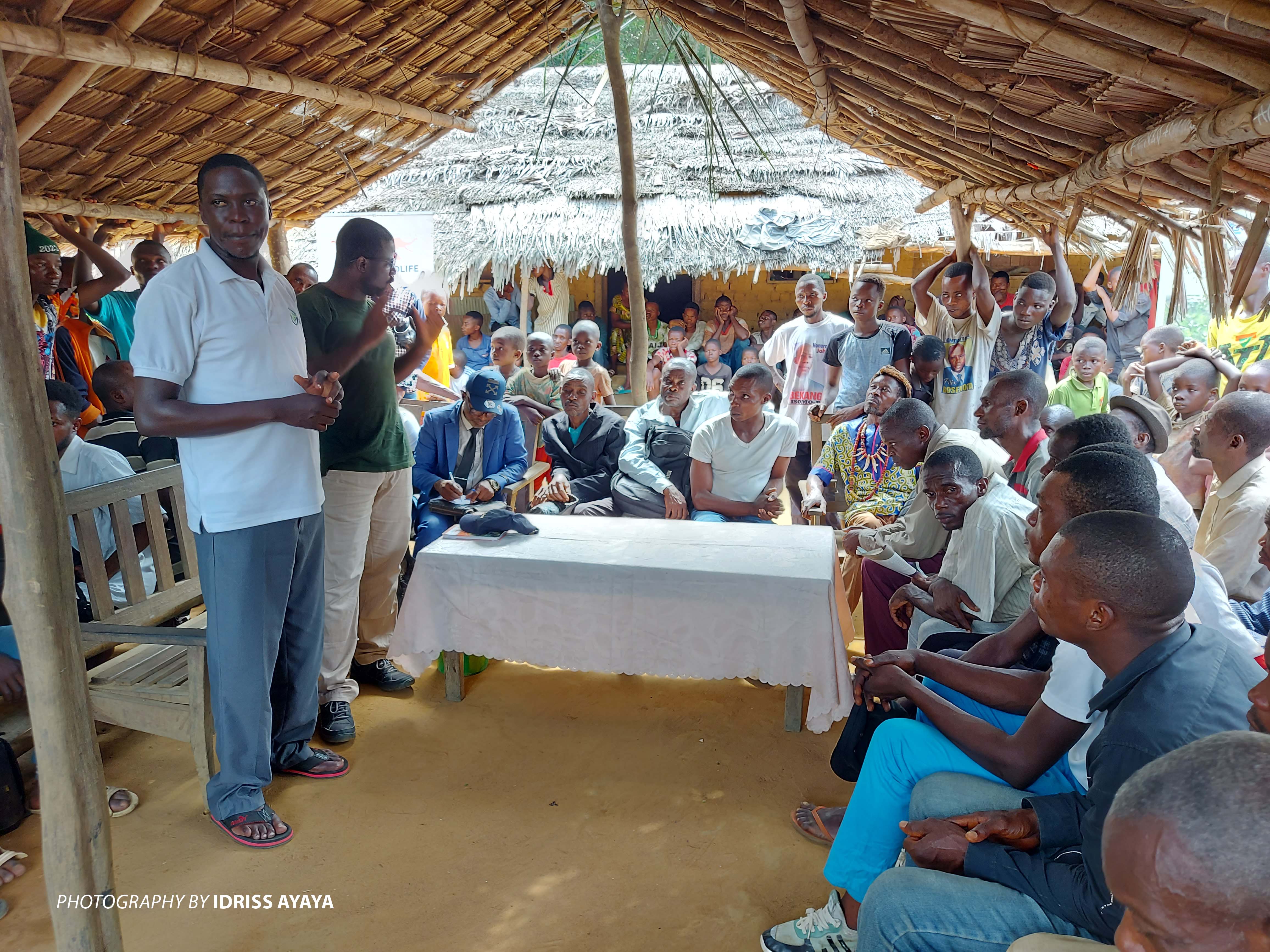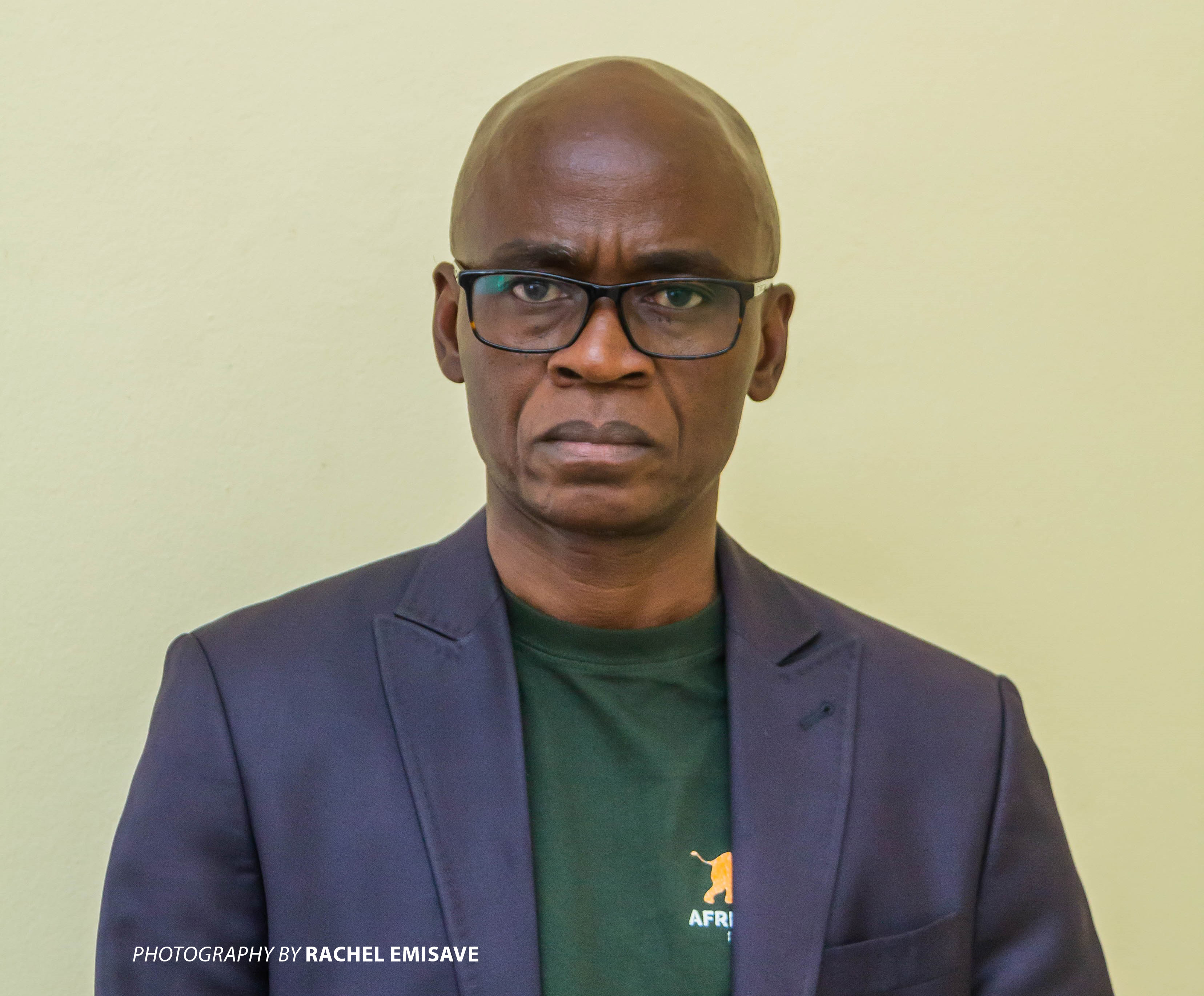People must be the Focus of Conservation to Ensure Sustainable Tourism

Antoine Tabu, African Wildlife Foundation's DRC Country Coordinator, explains why he believes that the promotion of local communities' well-being is crucial to the success of sustainable tourism in DRC.
"We can do everything in the field of conservation, but as long as man is not at the center, poaching will continue to increase in our protected areas; and the local community and indigenous peoples will continue to stand in the way of any conservation action."
In the Democratic Republic of Congo, in particular, there are undoubtedly several negative aspects that slow down the emergence of tourism, such as insecurity, the inaccessibility of Protected Areas, the non-diversification of tourist attractions, etc. Still, for all these ills, a single remedy would serve as a starting point: "the centralization of human well-being."
Suppose nature conservation benefits the local community and indigenous peoples. In that case, they will support and invest in this noble cause, which will lead to an increase in wildlife in our forests and attract tourists to all four corners of the country. We must seek financing mechanisms that improve the livelihoods and living conditions of those close to the majestic forests within the Congo Basin. It is a strategy that entails financial costs but is worth its weight in gold.
In the Maringa Lopori Wamba landscape, located between the provinces of Tshuapa and Mongala, AWF initially faced resistance from the local community, "the Mongo," convinced that its installation in this environment aimed to privatize the forest and deprive them of non-timber forest products.
Yes, that's what happened. I agree that this reaction is expected, given that it reflects a deep fear of potential deprivation of the primary source of survival of an entire community.
In this landscape, our starting point was the Likunduamba community, whose structure is an average of 415 households of 6 individuals each, i.e., a population estimated today at 2500 inhabitants. This group was more responsive to participating in developing an inclusive program. A concept that was new and gave them a listening ear and opportunity to drive the project proposal. Community leaders gave AWF through the Classroom Africa program the go-ahead to build a primary school called "Madina," which, to this day, operates and houses more than 300 students, with access to free education structured around a conservation-heavy curriculum.
Thanks to this school, other nearby MLW communities have witnessed the impact and the benefits conservation offers to scale sustainable development. This has led to rallying calls and invites across the region for AWF to co-create similar programs with the communities.
Some might ask what type of investment would suit the DRC context 80%-90% of protected areas in the Democratic Republic of Congo are landlocked due to road inaccessibility. So, resolving the pressing need to access communities before even considering the diversification of livelihoods would help connect protected areas to nearby cities and thus facilitate the movement of people and vital resources.
In addition, many of the populations who live in and around these protected areas suffer from the insecurity that plagues these environments and see their movements restricted and sometimes even limited in their organizational perspective. Investing in the promotion of peace and the restoration of security is a motivation not only for local communities in terms of their personal development but also an attraction for tourists and investors.
Finally, advancing community awareness is at the heart of ensuring success in these landscapes. "He who knows nothing cannot be condemned for not having done." While some people think that the funds allocated to raising awareness are not worth it, from the depths of my being, I am convinced that by being exposed to the same message several times, the conscience gives way, especially when actions accompany speech.

Raising awareness here does not only concern those who live near Protected Areas but also all citizens to promote internal tourism over external tourism. It is undoubtedly good to count on visitors to appreciate what we have, but it is better to consume locally.
We must understand that today, more than ever, the solution to the sustainable tourism equation in the Democratic Republic of Congo is a balanced scale that weighs human well-being on the left and the well-being of biodiversity on the right.